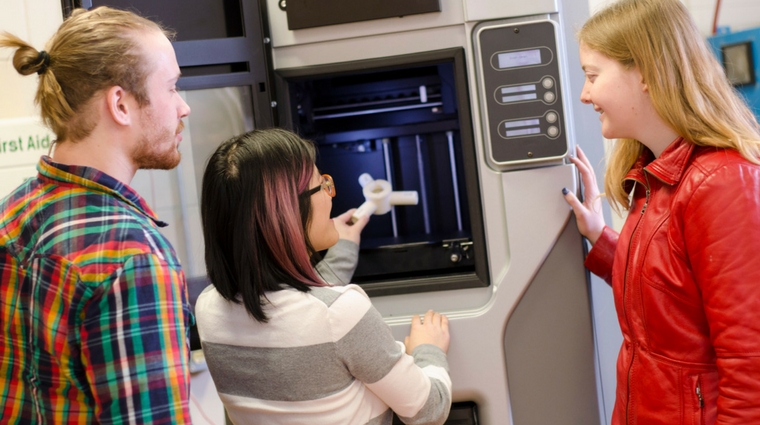By Dr. Larry Rosia, president and CEO
Think about how your job has changed since your first day.
Assuming you have been in your position for more than a few weeks or months, it would not be surprising if many aspects are different—and that a good number of the changes were driven by technology.
So, have you ever stopped and wondered what the future might hold? Or more specifically, how technology will impact your job in the coming years?
Preparing for this new world is what polytechnics do each and every day. Saskatchewan Polytechnic is a prime example. We consult with business and industry constantly and adjust our programming according to these labour market recommendations, ensuring our graduates have the right skillsets to guarantee that Saskatchewan remains productive and competitive. We keep our eyes on the future.
As Nobina Robinson, CEO of Polytechnics Canada, pointed out in an article in The Hills Times: “The goal of polytechnic education is employment. Polytechnics act as direct talent pipelines to industry. The combination of widely available work-integrated learning opportunities and programming that is designed by industry means that students graduate with a broad set of transferable soft skills, but also technical, industry-specific skills. They graduate to jobs.”
Like other polytechnics in Canada, Sask Polytech ensures that students have the technical skills to succeed, while also possessing the soft skills cited by Ms. Robinson.
But what exactly are soft skills?
Broadly speaking, soft skills are the skills that give people the ability to make complex decisions, think critically and creatively, apply entrepreneurial concepts to their work, and understand the dynamics of working within a team structure. Experts advise these skills are essential to meet the challenges and seize the opportunities that will result from the looming change and technology disruptions.
Think of your own job and how you may have developed such soft skills. This learning did not happen overnight.
Thanks to a $100,000 donation from the RBC Foundation, Sask Polytech has embarked on an exciting new initiative to help prepare students in their transition to the workforce. Our first step is to identify the soft skills gap with two major audiences: employers and future and existing employees.
Working in collaboration with other members of Polytechnics Canada, we are able to tap into a national network of post-secondary institutions with close relationships with industry, and identify soft skills gaps in industry sectors across Canada.
A key part of this project will be to develop what we are tentatively calling the Institute of Workforce Transition. The institute will develop an inventory of assessment tools to assist in the identification of soft skill gaps for employers and students, and will develop a suite of remediation strategies and tools for success.
Over the years, Sask Polytech has achieved a reputation for excellence because of its strong partnerships with business and industry. By connecting companies with our academic expertise, leading-edge technology and state-of-the-art facilities, we have helped many businesses tackle complex applied research projects to solve real problems for companies. We also work with industry to create the programs it needs to ensure Saskatchewan remains economically competitive, as a recent article on our new Innovative Manufacturing program in Industry West magazine illustrated.
We believe the workforce transition initiative, which will begin to take shape in the year ahead, will further solidify our reputation for excellence because it goes to the very heart of Sask Polytech’s mission: To educate students and provide skilled and successful graduates.
As the nature of work evolves and automation, artificial intelligence and other technologies disrupt the workplace, it will be important that tomorrow’s workers have the skills to succeed. Just as our jobs have changed since the day we started, be assured the jobs of the future will change too.
Addressing this reality today will best prepare everyone for the realities of tomorrow.
Published January 2018.


